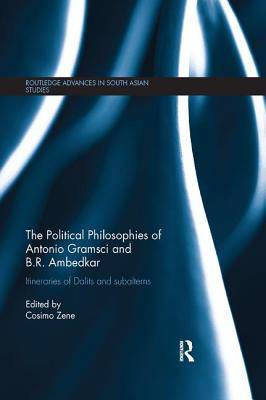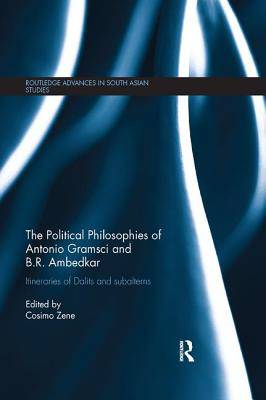
- Afhalen na 1 uur in een winkel met voorraad
- In januari gratis thuislevering in België
- Ruim aanbod met 7 miljoen producten
- Afhalen na 1 uur in een winkel met voorraad
- In januari gratis thuislevering in België
- Ruim aanbod met 7 miljoen producten
The Political Philosophies of Antonio Gramsci and B. R. Ambedkar
Itineraries of Dalits and Subalterns
Omschrijving
Bridging two generations of scholarship on social inequality and modern political forms, this book examines the political philosophies of inclusion of subalterns/Dalits in Gramsci and Ambedkar's political philosophies. It highlights the full range of Gramsci's 'philosophy of praxis' and presents a more critical appreciation of his thought in the study of South Asian societies. Equally, Ambedkar's thought and philosophy is put to the forefront and acquires a prominence in the international context.
Overcoming geographical, cultural and disciplinary boundaries, the book gives relevance to the subalterns. Following the lead of Gramsci and Ambedkar, the contributors are committed, apart from underscoring the historical roots of subalternity, to uncovering the subalterns' presence in social, economic, cultural, educational, literary, legal and religious grounds. The book offers a renewed critical approach to Gramsci and Ambedkar and expands on their findings in order to offer a present-day political focus into one of the most crucial themes of contemporary society.
This book is of interest to an interdisciplinary audience, including political theory, post-colonial studies, subaltern studies, comparative political philosophy, Dalit studies, cultural studies, South Asian studies and the study of religions.
Specificaties
Betrokkenen
- Uitgeverij:
Inhoud
- Aantal bladzijden:
- 242
- Taal:
- Engels
- Reeks:
Eigenschappen
- Productcode (EAN):
- 9781138578661
- Verschijningsdatum:
- 12/10/2017
- Uitvoering:
- Paperback
- Formaat:
- Trade paperback (VS)
- Afmetingen:
- 156 mm x 233 mm
- Gewicht:
- 452 g

Alleen bij Standaard Boekhandel
Beoordelingen
We publiceren alleen reviews die voldoen aan de voorwaarden voor reviews. Bekijk onze voorwaarden voor reviews.








